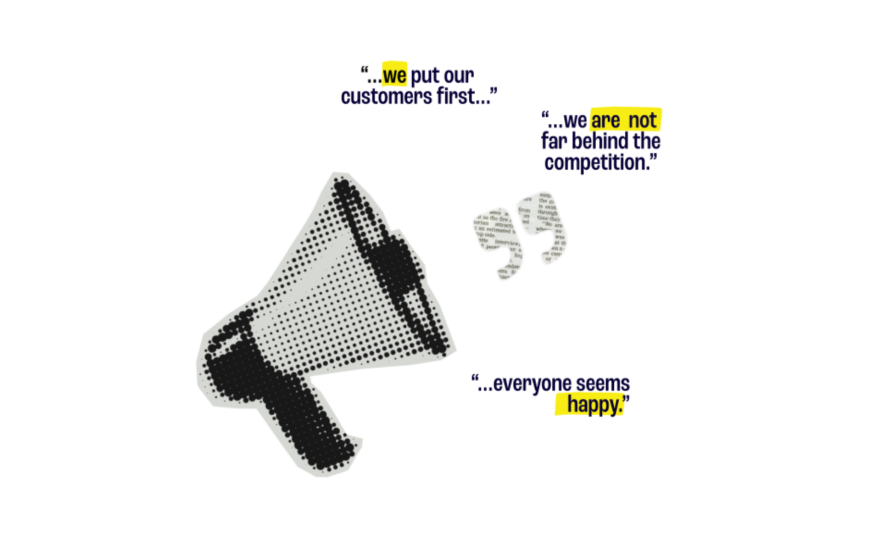In my previous article “Embracing the Experience Age" I talked about the shift taking place in the world, from the Information Age to the Experience Age, and why it is crucial for businesses to evolve in response to this new paradigm. As we move into this uncharted territory, it’s important to ask: How can businesses not only adapt but thrive in creating meaningful, memorable experiences that resonate deeply with consumers?
In this follow-up piece I am going to look at practical, innovative strategies that businesses can employ to captivate and engage their audience. This includes leveraging technology and human-centric design to align with core values and embracing a culture of experimentation. Ultimately at 7DOTS we want to help our clients to lead in the Experience Age, transforming challenges into opportunities for growth, connection, and unparalleled innovation. So let’s look at the foundations for building compelling digital experiences that set the stage for success.
Crafting compelling digital experiences
In today's digital-first world, businesses must prioritise creating captivating digital experiences over merely disseminating information. Technology now enables intuitive user interfaces, personalised recommendations, and immersive storytelling, leaving a lasting impression on audiences.

Netflix is a digital disrupter who exemplifies this approach, tailoring experiences to individual tastes through their recommendation engine and keeping viewers glued to the screen. Their relentless focus on personalisation and user-friendliness, driven by data insights has helped them become a real pioneer of the experience economy. They have left the information-focused scheduled television model looking dated and increasingly irrelevant for millions.
Human-Centric design
At the core of the experience age is a human-centric design approach, where businesses prioritise empathy and understanding to anticipate customer needs. This entails designing intuitive, accessible, and meaningful products and services to enhance the overall customer experience. Consistency is essential for truly human-centric experiences.
Feverup, an events platform has a human-centric ethos by curating unique and unforgettable experiences for its customers. They offer a diverse selection of events tailored to individual interests, ensuring there's something for everyone. Their personalised recommendations and user-friendly interface streamline the booking process, fostering customer delight and loyalty.
Aligning with purpose and values
In an age where consumers are increasingly mindful of the social and environmental impact of their choices, businesses must align with purpose and values that resonate with their target audience and realise them via their brand touchpoints. This is a smart strategy for now, but also for the future.
Whether it's sustainability, diversity, or social responsibility, incorporating these values into the brand's ethos can foster deeper connections and experiences with customers and drive brand loyalty. A 2022 IBM study found that 83% of global consumers would switch brands based on their values.
With the rise in the spending power of more sustainability-minded millennials and Gen Z this is only going to become more pressing. Indeed according to research from First Insight 73% of Millennials and 62% of Gen Z shoppers are willing to pay more for sustainable products.
Patagonia is a great example of a brand that thrives on aligning purpose with unforgettable experiences. Founded by a climber passionate about protecting the very landscapes he explored, Patagonia prioritises environmental responsibility in everything they do. From recycled materials to their "1% for the Planet" initiative, Patagonia actively minimises their environmental footprint. From digital to physical, Patagonia's commitment to environmental responsibility shines through.
This resonates with eco-conscious travelers seeking experiences that align with their values. They don't just sell products; they offer experiences that empower you to explore consciously, making Patagonia a leader in purpose-driven adventures.
Embracing a test and learn approach
Transitioning to the experience age necessitates embracing experimentation and innovation. Brands must adapt to technological trends and continually refine offerings based on customer feedback and market insights.
Relying solely on traditional digital metrics is inadequate; understanding emotional resonance and unspoken customer responses is crucial. This involves understanding that the real truth often exists in the gaps between what people say, and employs that philosophy across all the information gathering that you do. What we at 7DOTS call ‘whitespace listening.’
This culture of experimentation fosters creativity, driving continuous improvement and keeping businesses ahead in a rapidly changing landscape.
Airbnb exemplifies the shift towards experience-driven business. They haven't just created a platform for booking stays, they've crafted a way to experience the world through unique and immersive accommodations. Airbnb thrives on experimentation and innovation, constantly refining its offerings based on user feedback and travel trends. They understand that successful experiences go beyond the listing itself - it's about the emotional connection between travelers and the places they stay.

Building a framework for success
Finally to navigate the complexities of the experience age, businesses need a robust framework that helps guide their efforts. This framework should encompass elements such as customer-centricity, digital innovation, ethical considerations, and employee empowerment and training. By establishing clear goals and strategies within this framework, businesses can effectively chart their course in the experience-centric landscape.
The transition to the experience age represents a paradigm shift in how businesses engage with their customers. Those that prioritise the creation of meaningful and memorable experiences will emerge as the leaders of tomorrow. They would do well to follow the maxim of Albert Einstein: “Information is not knowledge. The only source of knowledge is experience. You need experience to gain wisdom.”
Share this article

